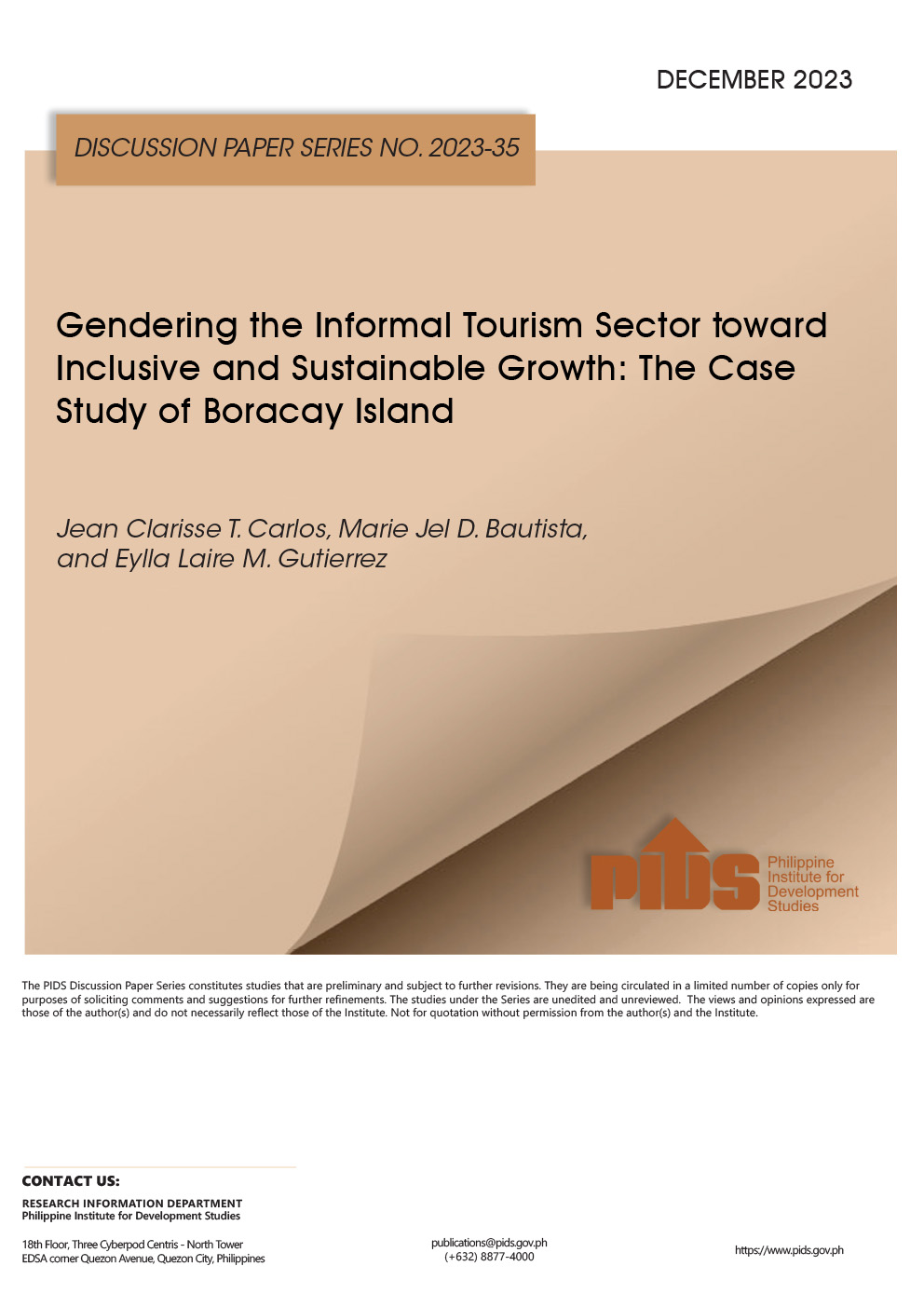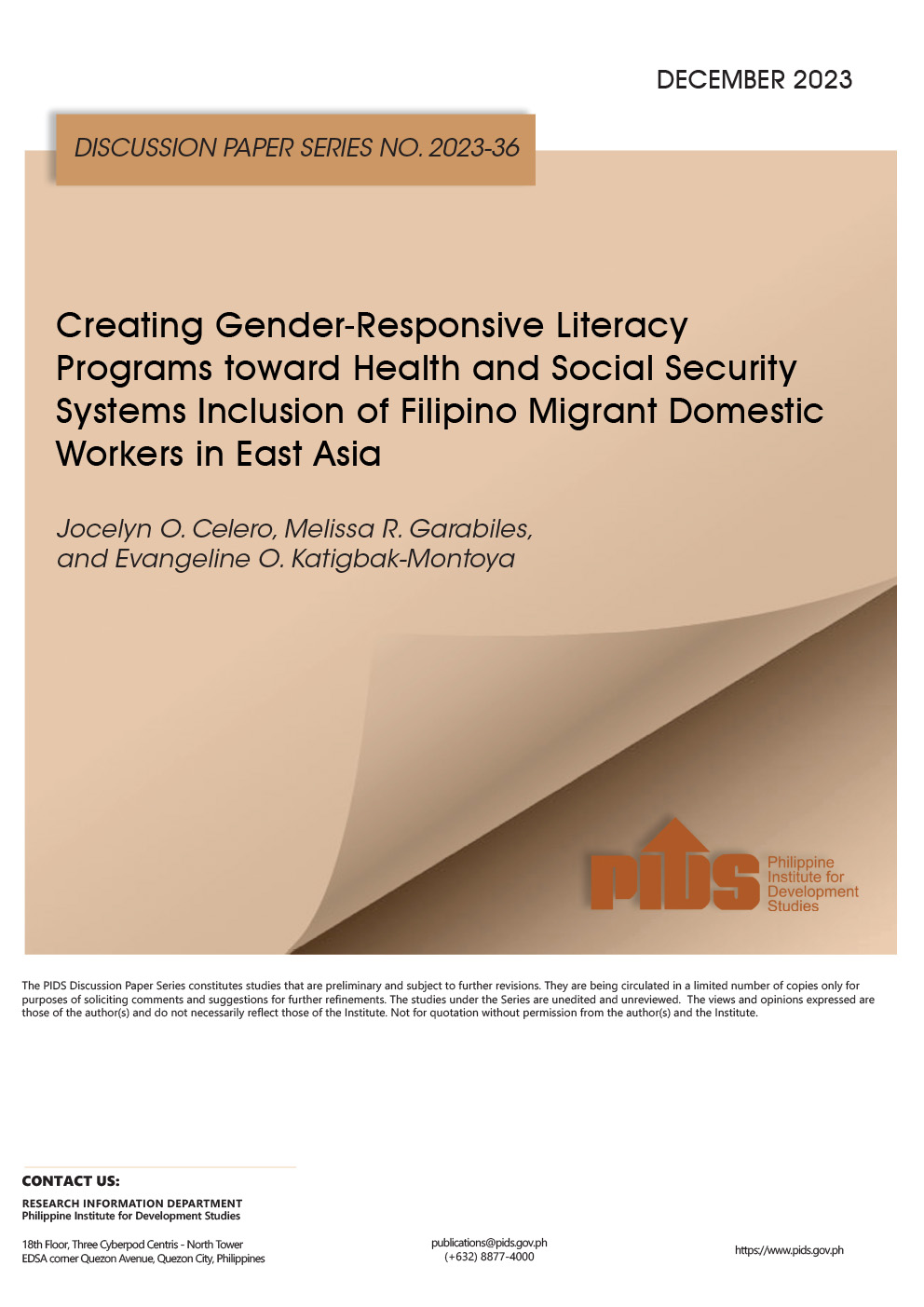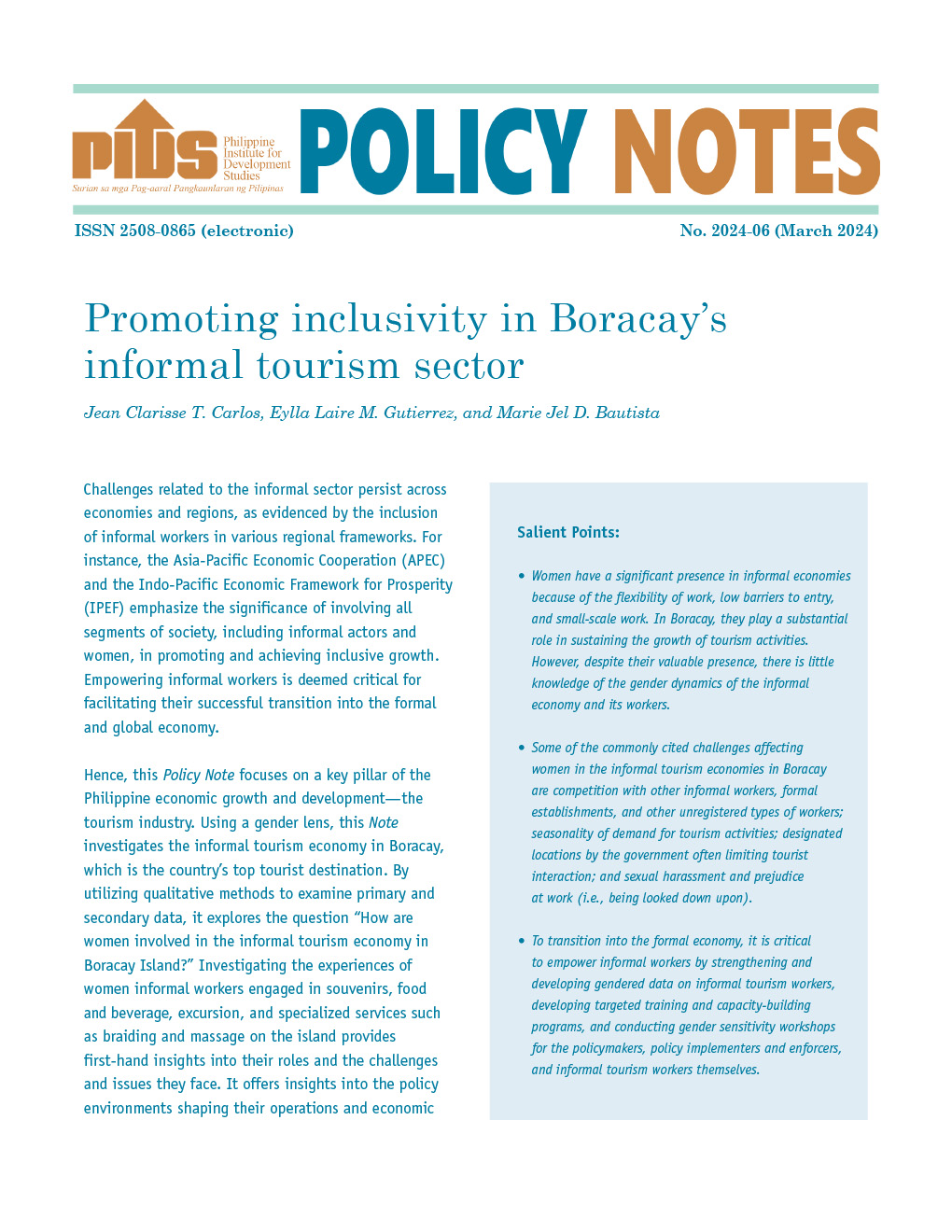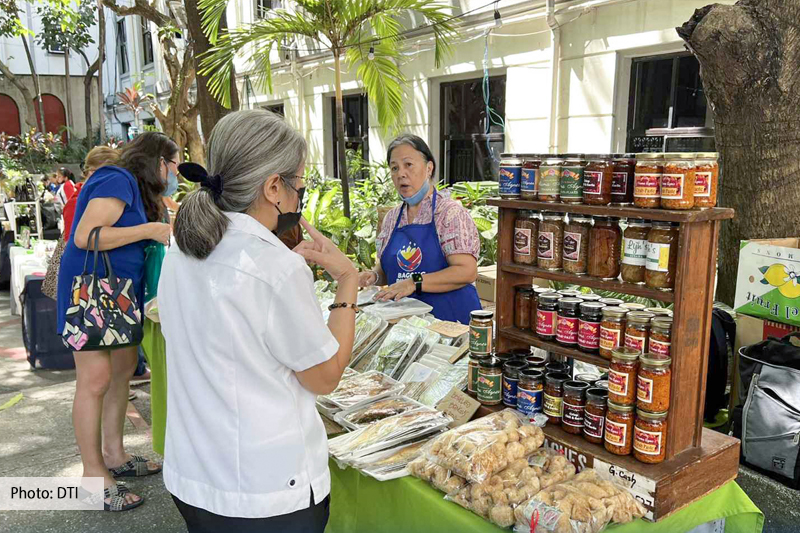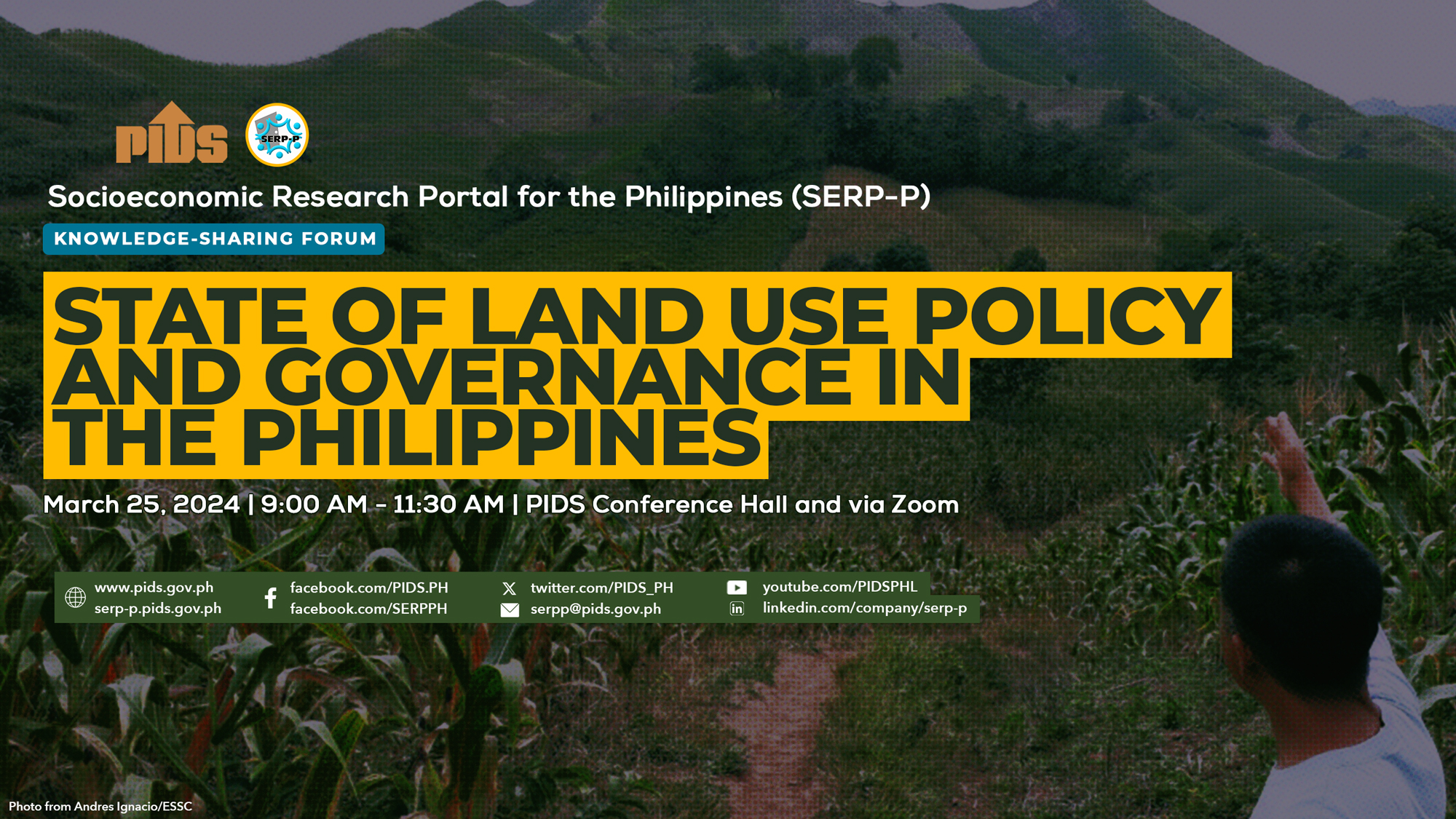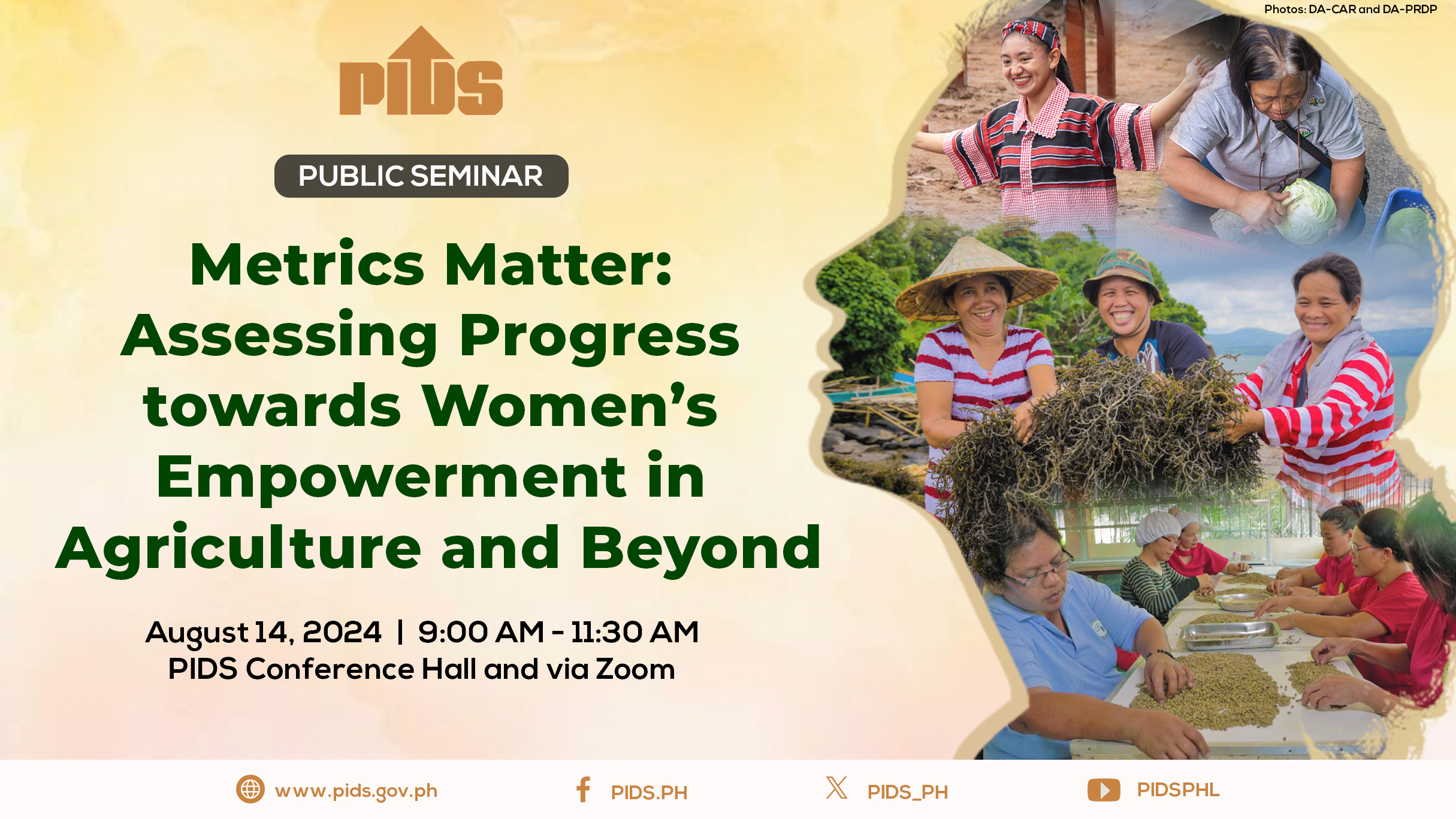MANILA - Filipino women remain inadequately represented in key leadership positions both in government and in different industries, a study by the state think tank showed.
Gender inequality still prevails in the Philippine government and the business sector with a few women holding top positions where key policies are usually decided, said the Philippine Institute for Development Studies (PIDS).
According to PIDS, the share of government positions held by women remains below parity.
In the 24-member Senate, for instance, only 3 to 6 women have won seats in elections since 2001, with none assuming the rank of Senate President.
“Only Loren Legarda has ever served in a leadership position within the Senate as the majority leader of the 12th Senate in 2001. No female has ever assumed the rank of Senate President or House Speaker,” PIDS said.
The current Senate composition has 6 female senators namely Nancy Binay, Leila de Lima, Risa Hontiveros, Loren Legarda, Grace Poe, and Cynthia Villar.
Cabinet posts also remain to be dominated by men, with female officials usually holding traditionally female-associated areas such as health, tourism, and social welfare.
The current Cabinet of President Rodrigo Duterte only has two female members: Tourism Secretary Wanda Teo and Education Secretary Leonor Briones.
Duterte's three other female appointees to the cabinet were earlier rejected by the bicameral Commission on Appointments: Gina Lopez (environment), Judy Taguiwalo (social welfare), and Paulyn Ubial (health).
Those who left the cabinet meanwhile were Vice President Leni Robredo, the woman currently holding the highest elected post, and Commission on Higher Education Chair Patricia Licuanan, who were both told to stop taking part in the executive meeting.
Gender equality, meanwhile, is stronger in local politics such as in the positions of governor, mayor, and lower elected positions.
In 2013, only 11 percent of elected local officials were women, a sharp decline from 20 percent in 2010.
The PIDS added that at the village level, women occupied only 19 percent and 27 percent of all barangay captain and councilor posts, respectively.
Data from the Commission on Elections in 2017 showed that women accounted for only 17 percent of national and local candidates from 2004 to 2016.
"As a result, women currently hold roughly 1 in every 5 national and local elective positions," PIDS said.
INDUSTRY REPRESENTATION
Women are also underrepresented in top business posts such as chief-level positions, board memberships and director positions, with only 32 percent and 11 percent holding corporate executive and board member positions in the Philippines respectively, data from the World Bank showed.
The study explained that Filipino women who head business firms are usually those involved in the retail, food, and pharmacy sectors.
“Filipino women at the top executive positions usually hold posts as treasurers, corporate secretaries, and finance managers," it said.<
When it comes to the senior and middle management levels, however, women are almost at par in representation with men, occupying 40 to 43 percent of management positions over the past 15 years.
WHY?
The study explained that the small female representation in elective office may be attributed to the limited involvement of women in electoral politics and not to the low inclination of the general public to vote for them.
It also noted that the presence of political dynasties makes it more difficult for women without connections to affluent personalities to enter politics.
“A target of 40-percent representation across all high-level offices is reasonable given that half of the population are women and assuming that voters do not discriminate by sex,” the study said.
In terms of industry representation, the study highlighted the importance of including women in key discussions since they see different aspects of situations from men.
“A greater participation of women in all industry levels is good for business since female managers and decision-makers see additional aspects of problems and solutions in the daily operations of their companies. Women are informed by their own challenges and experiences, which are different from those of men,” the study said.
It noted that greater female representation at top leadership positions in government and business is critical to sustaining developments in gender equality in the Philippines.
Achieving gender equality is part of the 17 Sustainable Development Goals of the United Nations and the 2030 Agenda for Sustainable Development of the Philippines.
The PIDS study was authored by the think tank's senior research fellow Jose Ramon Albert, consultant Clarissa David, and research analyst Jana Flor Vizmanos.
Gender inequality still prevails in the Philippine government and the business sector with a few women holding top positions where key policies are usually decided, said the Philippine Institute for Development Studies (PIDS).
According to PIDS, the share of government positions held by women remains below parity.
In the 24-member Senate, for instance, only 3 to 6 women have won seats in elections since 2001, with none assuming the rank of Senate President.
“Only Loren Legarda has ever served in a leadership position within the Senate as the majority leader of the 12th Senate in 2001. No female has ever assumed the rank of Senate President or House Speaker,” PIDS said.
The current Senate composition has 6 female senators namely Nancy Binay, Leila de Lima, Risa Hontiveros, Loren Legarda, Grace Poe, and Cynthia Villar.
Cabinet posts also remain to be dominated by men, with female officials usually holding traditionally female-associated areas such as health, tourism, and social welfare.
The current Cabinet of President Rodrigo Duterte only has two female members: Tourism Secretary Wanda Teo and Education Secretary Leonor Briones.
Duterte's three other female appointees to the cabinet were earlier rejected by the bicameral Commission on Appointments: Gina Lopez (environment), Judy Taguiwalo (social welfare), and Paulyn Ubial (health).
Those who left the cabinet meanwhile were Vice President Leni Robredo, the woman currently holding the highest elected post, and Commission on Higher Education Chair Patricia Licuanan, who were both told to stop taking part in the executive meeting.
Gender equality, meanwhile, is stronger in local politics such as in the positions of governor, mayor, and lower elected positions.
In 2013, only 11 percent of elected local officials were women, a sharp decline from 20 percent in 2010.
The PIDS added that at the village level, women occupied only 19 percent and 27 percent of all barangay captain and councilor posts, respectively.
Data from the Commission on Elections in 2017 showed that women accounted for only 17 percent of national and local candidates from 2004 to 2016.
"As a result, women currently hold roughly 1 in every 5 national and local elective positions," PIDS said.
INDUSTRY REPRESENTATION
Women are also underrepresented in top business posts such as chief-level positions, board memberships and director positions, with only 32 percent and 11 percent holding corporate executive and board member positions in the Philippines respectively, data from the World Bank showed.
The study explained that Filipino women who head business firms are usually those involved in the retail, food, and pharmacy sectors.
“Filipino women at the top executive positions usually hold posts as treasurers, corporate secretaries, and finance managers," it said.<
When it comes to the senior and middle management levels, however, women are almost at par in representation with men, occupying 40 to 43 percent of management positions over the past 15 years.
WHY?
The study explained that the small female representation in elective office may be attributed to the limited involvement of women in electoral politics and not to the low inclination of the general public to vote for them.
It also noted that the presence of political dynasties makes it more difficult for women without connections to affluent personalities to enter politics.
“A target of 40-percent representation across all high-level offices is reasonable given that half of the population are women and assuming that voters do not discriminate by sex,” the study said.
In terms of industry representation, the study highlighted the importance of including women in key discussions since they see different aspects of situations from men.
“A greater participation of women in all industry levels is good for business since female managers and decision-makers see additional aspects of problems and solutions in the daily operations of their companies. Women are informed by their own challenges and experiences, which are different from those of men,” the study said.
It noted that greater female representation at top leadership positions in government and business is critical to sustaining developments in gender equality in the Philippines.
Achieving gender equality is part of the 17 Sustainable Development Goals of the United Nations and the 2030 Agenda for Sustainable Development of the Philippines.
The PIDS study was authored by the think tank's senior research fellow Jose Ramon Albert, consultant Clarissa David, and research analyst Jana Flor Vizmanos.

